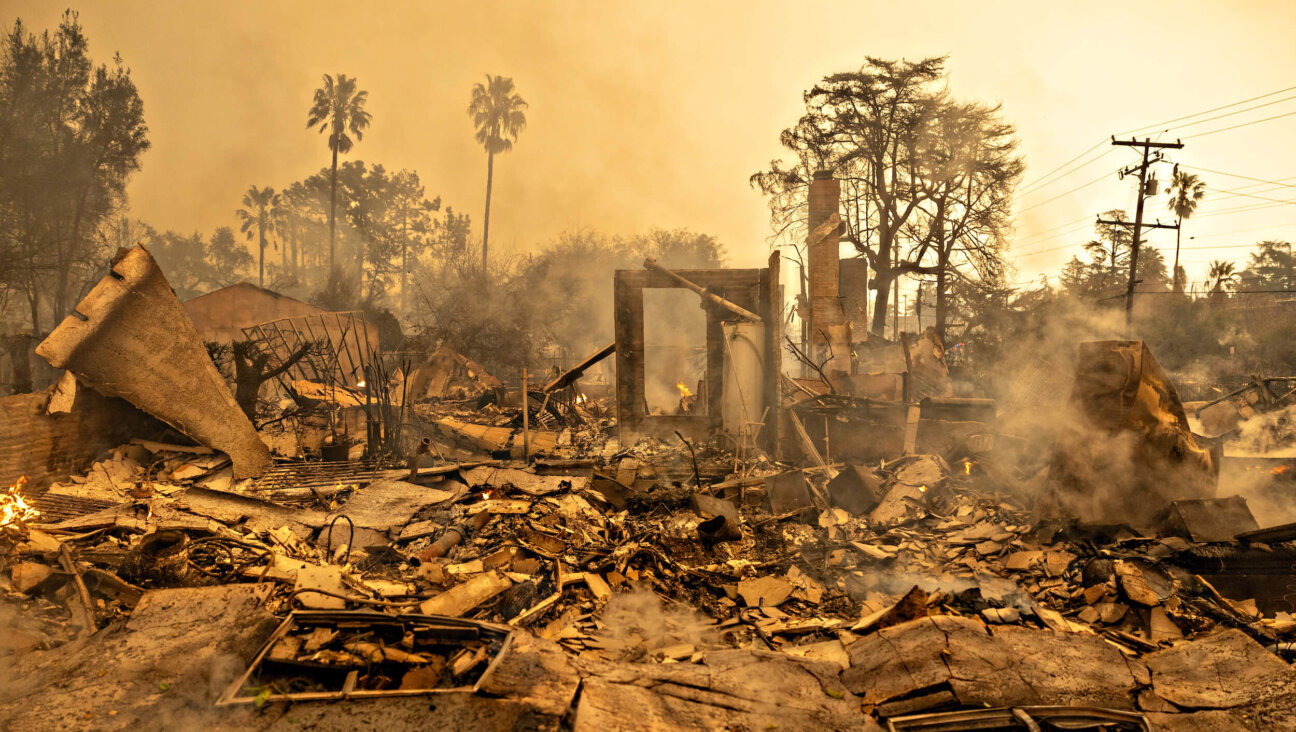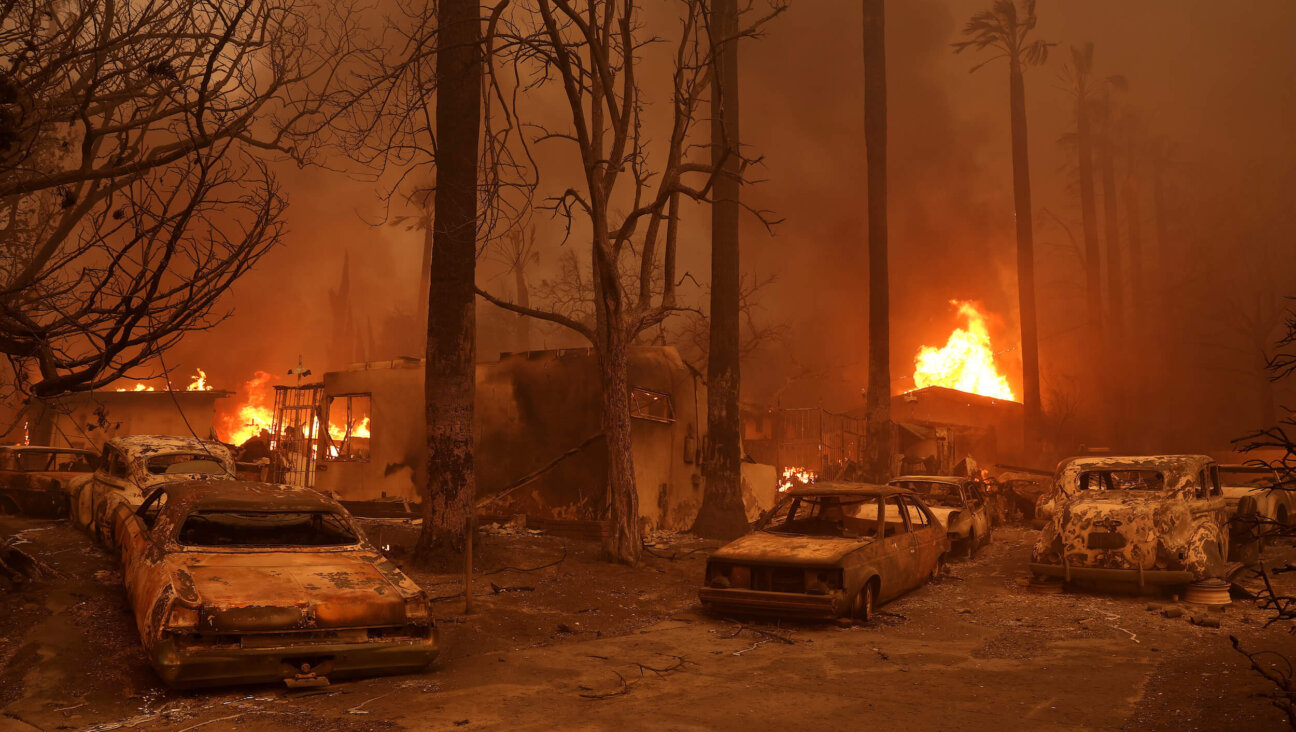What Israel’s independence cost my family

Image by Getty Images
My mother’s grandfather, Mahmoud, was a wealthy landowner in the village of Iraq Suwaydan, which used to be 17 miles north of Gaza. It was destroyed in 1948, during Operation Yoav, and my great-grandfather lost everything. He became one of the hundreds of thousands of refugees that flooded into Gaza as a result of the operation. Relegated to the life of a penniless refugee, his only wish was to return to his village. He thought of it as heaven on earth and never overcame the trauma of dispossession.

Muhammad Shehada | artist: Noah Lubin
Back then, refugees in Gaza dreamed of returning to their homes, and even believed it was possible. They were told the tents and refugee camps were only temporary. But when Israel and Egypt signed an armistice agreement in 1949 that made Israel’s borders official, their refugee status became permanent.
Mahmoud understood he would never see his village again, and that broke him. A few years later, Mahmoud got a visit from a fellow Palestinian refugee who had crossed into Israel and returned to Gaza. My great-grandfather’s guest brought him a small bag of figs and told him that he had picked those fruits from Mahmoud’s orchard in Iraq Suwaydan. He told my great-grandfather that his orchard was undamaged. This cruel realization — that his village remained empty and uninhabited, his orchard in tact, and yet, he could never move back there — brought Mahmoud to tears. Emotionally, he couldn’t understand why he couldn’t travel a few kilometers back to his village. He couldn’t handle this new reality, and died shortly after this encounter.
Maybe it’s for the best that he did not live to see the Israeli towns that would be built where Iraq Suwaydan once was. Perhaps Israel’s military leader, Moshe Dayan, said it best, when eulogizing an Israeli security officer killed by Arab marauders in 1956. “What we can say against their terrible hatred of us?” he said. “For eight years, they have sat in the refugee camps of Gaza, and have watched how, before their very eyes, we have turned their lands and villages, where they and their forefathers dwelled, into our home.”
Indeed.
My paternal grandfather, Hassan, lived to see Israelis turn our homes into theirs for over 100 years. When Israel captured his village in Operation Yoav, he had just spent his entire fortune on a new farm in the village of Hamama. For the next 60 years, he never stopped telling us stories of the village, the trauma of the exodus, and his hope to return.
Hassan planted one fig tree in his shelter in the Al-Shati refugee camp to remind him of his farm. It was his favorite spot in the world.
In 1967, my grandfather Hassan and his family were again made exiles, this time to Egypt, after Gaza fell under Israeli occupation. Still, my grandfather traveled back to Gaza to reclaim his old shelter and fig tree in the refugee camp. He refused to go anywhere else, as he waited out the long promise of statehood or return. He died in 2008 without realizing either.
Our confinement in Gaza by then had increased dramatically. Israel and Egypt imposed a blockade on the entire population in 2007 after Hamas won elections, and when my father got sick, the blockade prevented him from seeking medical treatment abroad. In his last days, he desperately craved figs, to remind him of his roots and to warm his heart with the memory of his father. I went door to door looking for figs, but found nothing; food was terribly scarce in the first years of blockade. I couldn’t stand to look in his eyes when he saw me empty handed.
Meanwhile, exiles we remain. I have always dreamed of seeing my ancestral villages in Israel, but the odds are stacked against me. While it’s easy for a tourist from California or Japan to visit Israel, Jerusalem and the West Bank, it’s nearly impossible for a Gazan to travel those few kilometers behind the walls and fences of separation.
My grandparents always told me stories of how they lived side by side with Jewish immigrants. They were their neighbors and fellow farmers until 1948. The way everything went since then has only been catastrophic for us; from Nakba to exile to today’s blockade.
Like many of my fellow Palestinians, I believe that it would have been — and still is — possible to create a safe haven for the Jewish people without dehumanizing us. Instead of throwing us behind giant concrete walls and checkpoints to forget about our existence, Israel could confront the fact that its founding came at our expense. Only then would we move forward, with equal rights for all and equal self-determination.
The creation of the state of Israel addressed a historic problem for Jewish minorities around the world, who suffered oppression for centuries. But the course of events that led to the establishment of Israel on the land of historic Palestine in effect redirected that oppression downwards, onto the Palestinian people. While Israel became a safe haven for our Jewish sisters and brothers, Palestinians were robbed not only of our statehood and rights but of our very humanity.
Muhammad Shehada is a contributing columnist for the Forward from Gaza. His work has also appeared in Haaretz and Vice. Find him on Twitter @muhammadshehad2.
A message from our Publisher & CEO Rachel Fishman Feddersen

I hope you appreciated this article. Before you go, I’d like to ask you to please support the Forward’s award-winning, nonprofit journalism so that we can be prepared for whatever news 2025 brings.
At a time when other newsrooms are closing or cutting back, the Forward has removed its paywall and invested additional resources to report on the ground from Israel and around the U.S. on the impact of the war, rising antisemitism and polarized discourse.
Readers like you make it all possible. Support our work by becoming a Forward Member and connect with our journalism and your community.
— Rachel Fishman Feddersen, Publisher and CEO























